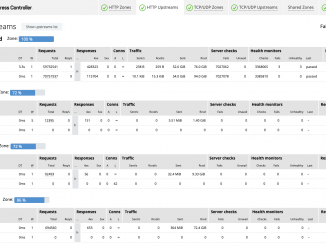
How to Improve Visibility in Kubernetes
How to Improve Visibility in Kubernetes Adoption of microservices accelerates digital experiences, but microservices architectures can also make those experiences more fragile. While your developers are running fast to get new apps out the door, your architecture may be putting you at increased risk for outages, security exposures, and time wasted on inefficient troubleshooting or fixing preventable problems. In this second blog of our series on production‑grade Kubernetes, we examine how components that provide traffic visibility can reduce complexity and improve security in your microservices environments. Gain Visibility to Attain Insight First, let’s look at a couple of definitions: Visibility – The state of being able to see or be seen Insight – A deep understanding of a person or thing In a 2020 survey from StackRox, 75% of Kubernetes users identified visibility as a “must‑have” capability. We agree that visibility is key in [ more… ]

